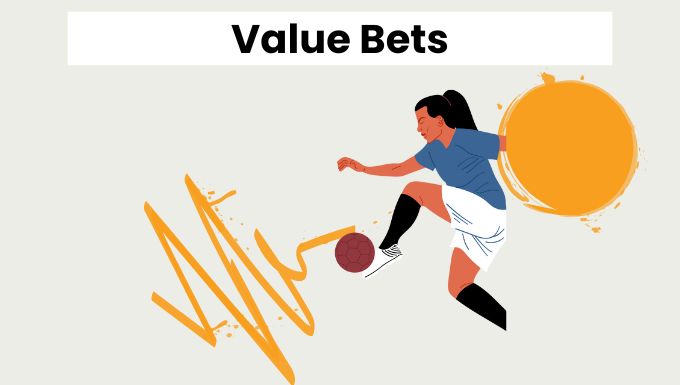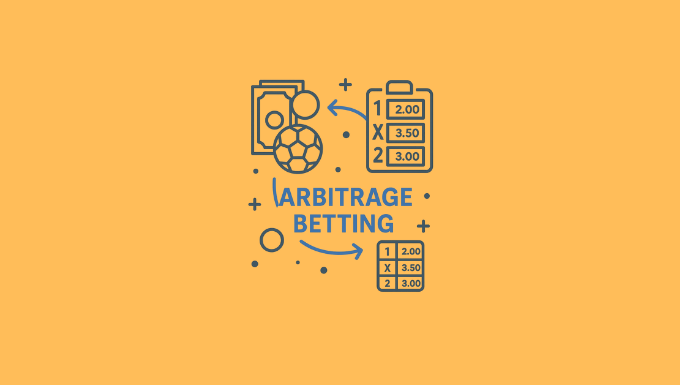When it comes to betting, everyone’s looking for that magic system that guarantees wins. I get it; I’ve been there too. But after years of trial and error, I’ve learned that winning isn’t about luck or chasing the latest “guaranteed” strategy. It’s about having a clear plan, staying disciplined, and sticking to what works. That’s why I want to share what I’ve learned about betting systems that actually deliver results.
The truth is, there’s no one-size-fits-all approach. What works for one person might not work for another. But there are core principles that every successful bettor follows. It starts with managing your money wisely, because no matter how good your picks are, you’ll lose if you can’t handle your bankroll. From there, it’s about finding value in the odds, focusing on what you know best, and keeping track of your bets to learn from your mistakes.

Finding Value Bets
Finding value bets is the backbone of any winning betting system, and it’s something I’ve spent years mastering. It’s not about picking winners; it’s about finding bets where the odds are better than they should be. Let me break it down for you.
First, you need to understand how odds work. Bookmakers set odds based on probabilities, but they’re not always right. Your job is to find spots where their odds don’t reflect the true likelihood of an outcome. For example, if a team has a 50% chance of winning but the odds imply a 40% chance, that’s a value bet. Over time, these small edges add up.
To spot value, you’ve got to do your homework. Study the sport, the teams, the players, and the trends. Look for situations where the market might overreact; like after a big upset or a losing streak. Sometimes, the public overvalues favorites or undervalues underdogs, and that’s where you can capitalize.
Comparing odds across different bookmakers is also crucial. Not all bookies offer the same odds, so shopping around can make a huge difference. I’ve saved countless times by having accounts with multiple bookmakers and always taking the best price available.
Finally, patience is key. Value betting isn’t about betting every day; it’s about waiting for the right opportunities. Some weeks, you might only place a handful of bets, and that’s okay. It’s better to make fewer, smarter bets than to force action and lose your edge.
Bankroll Management
Bankroll management is the backbone of any successful betting system, and I can’t stress enough how important it is. It’s not about picking winners every time; it’s about staying in the game long enough to let your edge play out. Here’s how to approach it.
First, set a bankroll. This is the amount of money you’re willing to lose, and it should be separate from your everyday finances. Never bet money you can’t afford to lose. Once you’ve got that number, divide it into units. I usually recommend 1-2% of your bankroll per bet, depending on your confidence level. This way, even a bad run won’t wipe you out.
Next, stick to your unit size. It’s tempting to go big when you’re on a hot streak or chase losses after a bad day, but that’s how people blow their bankrolls. Discipline is key. If you’re betting ₦1,000 a game, keep it at ₦1,000.Don’t let emotions dictate your stakes.
Adjust your bankroll as you go. If your bankroll grows, you can increase your unit size slightly. If it shrinks, lower it. The goal is to protect your bankroll so you can keep betting and capitalize on opportunities when they come.
Finally, track everything. Write down every bet, the stake, the odds, and the outcome. This helps you see patterns, learn from mistakes, and stay accountable. Over time, you’ll see how proper bankroll management keeps you afloat during rough patches and maximizes your wins during the good times.
Research, Records And Analysis
Research is what separates long-term winners from casual bettors. It’s not just about checking recent form or head-to-head stats; it’s about digging into deeper data like expected goals (xG) in football, home/away performance splits, or even referee tendencies. The more angles you cover, the better your edge.
Analysis ties everything together. Once you have a solid record and enough research, you can test different betting strategies and refine them. Maybe you notice that certain markets like Asian handicaps or over/under goals -bring better returns. Or maybe you see that betting on favorites in tennis after losing the first set is a goldmine. Without tracking, you’d never know.
Avoiding Emotional Betting And Discipline
If there’s one thing that kills a betting system faster than anything else, it’s emotional betting. I’ve been there -chasing losses, doubling down after a bad run, backing my favorite team just because I want them to win. Every single time, it ended the same way: losing more money and feeling frustrated. The moment emotions take over, logic goes out the window, and that’s s when the bookies win.
Discipline is everything. A solid betting system isn’t just about picking winners; it’s about knowing when to bet, how much to stake, and when to walk away. I stick to my bankroll strategy no matter what. If I hit a losing streak, I don’t increase my stakes to make it back.Instead, I trust my system and keep my bets consistent. The key is thinking long-term. One bad day or week means nothing if your approach is profitable over time.
Another thing I’ve learned? Never bet just for the sake of betting. If there’s no value, I skip the bet. It’s hard sometimes, especially when there’s a big match, but forcing bets is how people drain their bankrolls.
Common Mistakes To Avoid
When it comes to betting, the biggest mistakes are usually the ones that slowly drain your bankroll without you even realizing it. I’ve learned the hard way that even the best betting system won’t t work if you keep falling into these traps.
First, chasing losses. It’s the quickest way to wreck any betting strategy. One bad day, and suddenly you’re doubling stakes to win it back.That’s emotion, not logic, and it kills long-term profits. Stick to your system, trust the process, and accept that losses happen.
Then there’s overconfidence. A few wins can make you think you’ve cracked the code. I’ve been there. That’s when people start betting on leagues they know nothing about or taking unnecessary risks. If a system works, stick to it. Don’t fix what isn’t broken.
And finally, not keeping records. If you’re not tracking every bet, you have no idea what’s actually making you money. Reviewing past bets helps spot weaknesses and refine your strategy
Winning in betting isn’t about luck or guessing; It’s about having a system that works and the discipline to stick to it. I’ve seen firsthand how keeping detailed records, doing proper research, and constantly analyzing results can turn betting from a gamble into an investment. It’s s not about finding a magic formula; it’s about consistently making smart, value-driven bets.
The truth is, most bettors fail because they let emotions take over. Chasing losses, ignoring bankroll management, and overestimating their knowledge are common mistakes that separate losers from long-term winners. A real betting system isn’t just about picking winners; it’s about managing risk, spotting value, and knowing when to walk away. For me, the biggest shift came when I stopped focusing on short-term results and started looking at the bigger picture. No system wins all the time, but a solid one gives you an edge over the long run.


